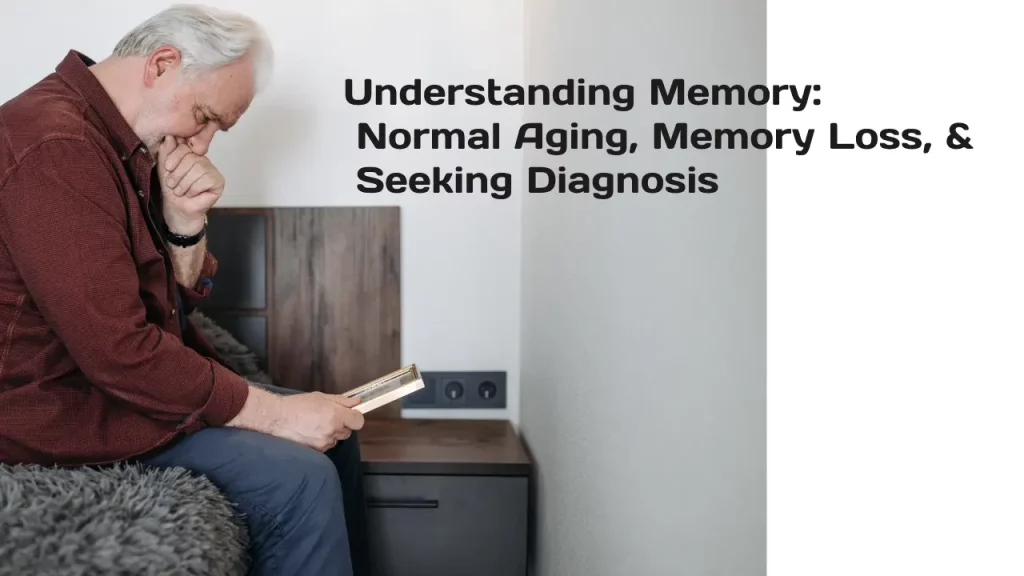Understanding Memory: Normal Aging, Memory Loss, and Seeking Diagnosis
Memory lapses are a common occurrence for everyone.
Do you find yourself misplacing your cell phone or car keys on occasion?
Have you ever experienced the frustration of forgetting the name of someone you just met?
It is important to note that as we age, it is normal to experience some degree of memory problems and a slight decline in cognitive abilities. However, it is crucial to distinguish between typical age-related memory changes and memory loss associated with serious conditions like dementia, Alzheimer’s disease, and related disorders.
Additionally, it is worth considering that certain memory issues may be caused by treatable conditions. By addressing underlying factors, some memory problems can be effectively managed or even reversed.
As we age, it is common to experience minor memory loss. This type of memory loss does not hinder one’s ability to lead a fulfilling and productive life. For instance, occasionally forgetting an acquaintance’s name but later recalling it or misplacing glasses and needing reminders for tasks are normal and manageable memory changes. They do not disrupt work, independent living, or social interactions. However, it is crucial to differentiate between these normal memory changes and memory loss associated with dementia. Dementia is not a specific disease but a collection of symptoms affecting memory, reasoning, judgment, language, and other cognitive abilities. It gradually develops, worsens over time, and interferes with daily life activities. Memory loss is often one of the initial signs of dementia, along with other early indicators like repetitive questioning, difficulty finding words, confusion, prolonged task completion, misplacing items, getting lost in familiar places, and unexplained changes in mood or behavior.
Additionally, mild cognitive impairment may involve noticeable declines in memory or thinking skills that surpass normal age-related changes but are less severe than those associated with dementia. While mild cognitive impairment does not impede everyday tasks and social engagement for some individuals, it can be an early indication of Alzheimer’s disease or other disorders causing dementia. It is important to recognize that memory loss can also be caused by reversible factors. Several medical conditions, such as medication side effects, head trauma, emotional disorders, sleep disorders, alcoholism, vitamin B12 deficiency, hypothyroidism, and brain diseases, can contribute to memory problems or dementia-like symptoms. If concerned about memory loss or if family members raise concerns, it is advisable to consult with healthcare professionals who can conduct assessments and screenings. Timely diagnosis is crucial, as identifying reversible causes allows for appropriate treatment, and early detection of mild cognitive impairment or dementia enables access to necessary resources, legal preparations, and future care preferences.
The process of accepting memory loss and the potential onset of dementia can be challenging. Some individuals may attempt to conceal their memory problems, while family members or friends may unknowingly compensate for the person’s memory loss by adjusting their own behaviors. However, obtaining a prompt and accurate diagnosis is of utmost importance, even though it may present certain difficulties.
Receiving a diagnosis allows for the identification of any reversible causes underlying the memory impairment, enabling appropriate treatment interventions. Moreover, an early diagnosis of mild cognitive impairment, Alzheimer’s disease, or related disorders offers numerous benefits. It facilitates the initiation of suitable treatments, helps individuals identify available resources, aids in resolving legal matters, and allows for the determination of future care preferences.
Dr. Anne Shandera-Ochsner, a clinical neuropsychologist based in Wisconsin, United States, emphasizes the significance of understanding memory-related changes and seeking professional guidance when memory concerns arise. Open communication with healthcare providers is crucial, as they can perform comprehensive evaluations, including physical examinations, blood tests, and brain imaging, to identify potential reversible causes of memory problems and dementia-like symptoms.
In certain cases, a referral to specialists such as neurologists, psychiatrists, neuropsychologists, or geriatricians may be necessary to diagnose and address specific memory disorders. Additional testing, such as neuropsychological evaluations, may also be conducted to determine whether any cognitive changes are within the range of normal aging or indicative of underlying conditions.
Though accepting and coping with memory loss can be emotionally challenging, early diagnosis and intervention offer individuals the opportunity to effectively manage their condition. By understanding the underlying causes of memory impairment and accessing appropriate support, individuals can navigate their memory-related challenges, maximize their quality of life, and make informed decisions regarding their future well-being.
Furthermore, it is crucial to acknowledge the impact that memory loss can have on individuals and their loved ones. Many people may try to hide their memory problems, feeling embarrassed or afraid of the potential implications. Family members and friends often adapt and compensate for the individual’s memory loss without even realizing the extent of their adjustments.
